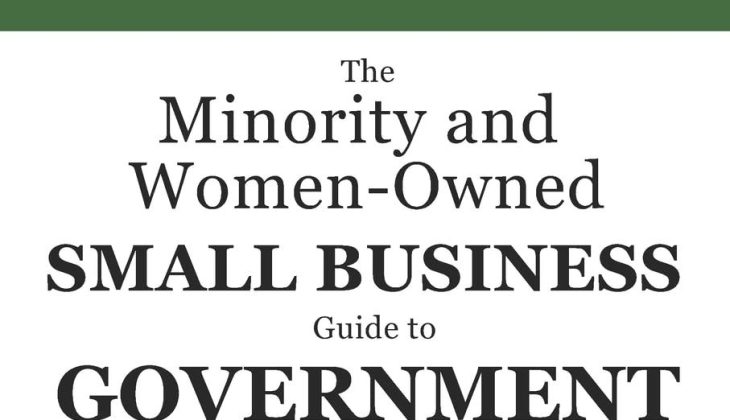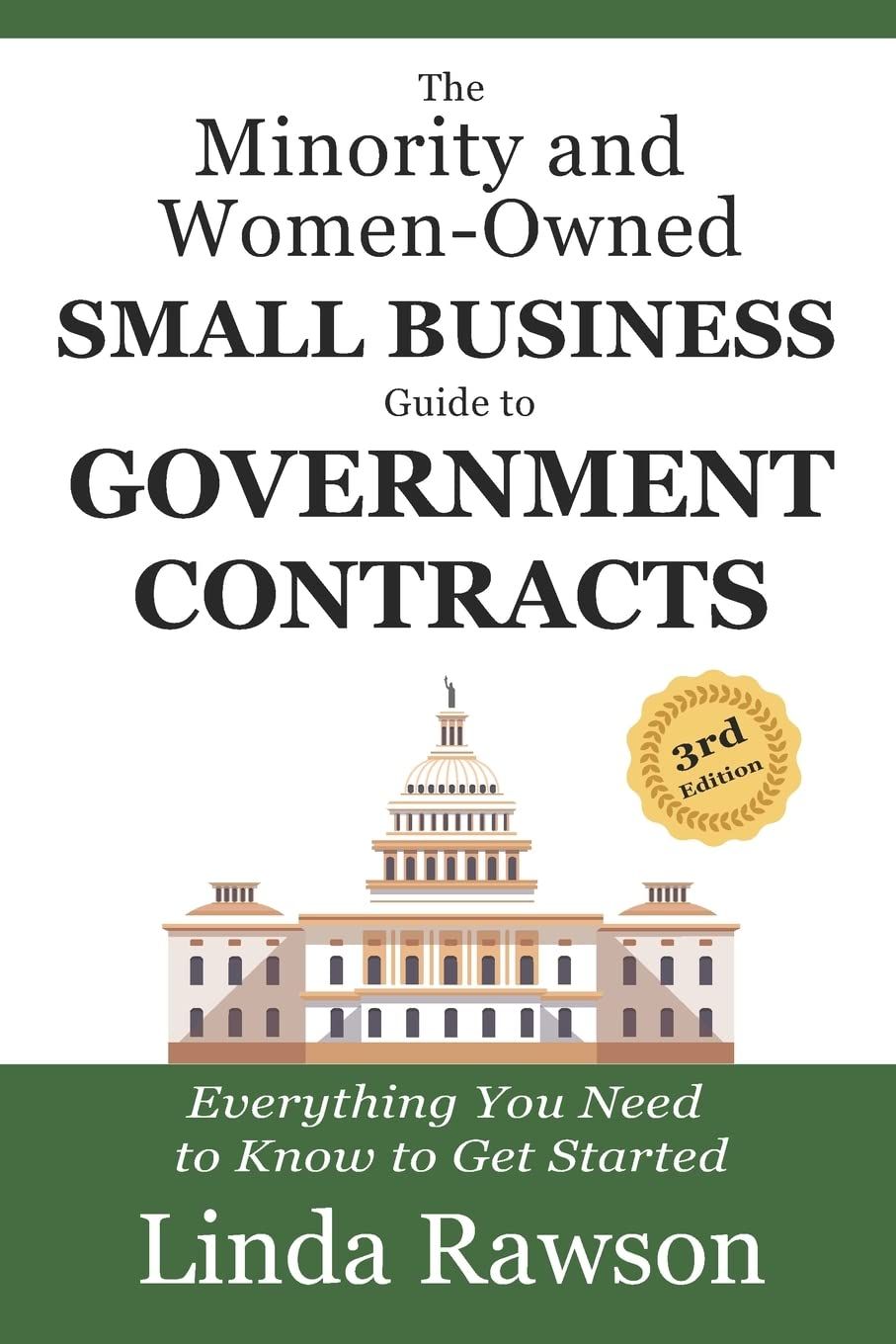Highlights
- Minority-owned businesses can benefit from a variety of tax incentives, including credits and deductions.
- Businesses must meet certain criteria to qualify for tax benefits, such as ownership and operational requirements.
- Women-owned businesses have special opportunities for tax breaks and government contracts.
- The federal government has a goal of awarding at least 5% of its contracts to women-owned small businesses each year.
- Understanding and applying for these benefits can greatly enhance a business’s growth and sustainability.
Supporting Minority and Women-Owned Businesses Through Tax Benefits and Government Contracts
Minority-owned and women-owned businesses are a crucial part of our economy. They bring innovation, diversity, and resilience to the marketplace. However, many of these businesses struggle to access capital and opportunities. This is where tax benefits and government contracts can be instrumental, serving as powerful tools to level the playing field.
How Tax Benefits Assist Businesses
For businesses, particularly those owned by women and minorities, tax benefits are crucial. They lower the total tax load, allowing for the reallocation of resources back into the business. This has the potential to increase hiring, growth, and innovation.
- Tax credits can decrease the amount of tax you owe to the government.
- Deductions can lower your taxable income, which reduces your overall tax liability.
- Exemptions can provide relief from certain taxes entirely.
These financial benefits can have a significant impact on a business’s bottom line, allowing for more strategic growth and stability.
Why Government Contracts Matter for Business Expansion
In addition to tax advantages, government contracts represent another path to expansion. The government is a significant purchaser of goods and services, and winning a contract can supply a reliable source of income. For businesses owned by minorities and women, these contracts can be transformative.
Government contracts typically offer these benefits:
- Opportunities for long-term income
- Enhanced reputation and visibility
- Entry into bigger markets
Most importantly, these contracts can help businesses grow and compete with bigger companies.
Tax Incentives for Minority-Owned Businesses
There are numerous tax incentives available for minority-owned businesses that are intended to aid in their development and longevity. These incentives are available at both the state and federal level and provide a variety of benefits to qualifying businesses.
An Introduction to Tax Incentives
Minority-owned businesses have a variety of tax incentives at their disposal. These incentives, which include tax credits, deductions, and exemptions, can help lower their total tax liability.
For instance, the Work Opportunity Tax Credit (WOTC) is a federal government program that provides tax credits to businesses that employ individuals from specific target groups, including minorities. Some states also offer tax credits to businesses that are located in enterprise zones, which are frequently areas with a higher population of minorities.
Who is Eligible for Tax Benefits?
In order to take advantage of these tax benefits, businesses must satisfy certain eligibility requirements. Typically, a minority-owned business is one that is at least 51% owned and operated by individuals who are members of a minority group.
In addition to ownership, the minority owner(s) must actively manage and operate the business. Often, documentation that proves the minority status of the owner(s), such as certification from a recognized minority business organization, is required.
How to Apply for Tax Incentives
Applying for tax incentives requires careful planning and documentation. Here are some steps to guide you through the process:
Here are the steps to take to make sure you’re getting the most out of your tax benefits:
- Figure out what tax incentives your business qualifies for.
- Collect all the necessary paperwork, like proof that your business is minority-owned and operated.
- Talk to a tax advisor or accountant who knows about the benefits for minority-owned businesses.
- Fill out and send in the necessary forms to the right tax authority.
- Keep track of your application and any letters or emails you get from tax authorities.
By following these steps, you can make sure you’re getting the most out of your tax benefits. This can give your business a financial boost that you can use to help your business grow and develop.
Eligibility for Tax Benefits for Women-Owned Businesses
Women-owned businesses can enjoy exclusive tax benefits that can offer substantial financial gains. To be eligible for these benefits, a business must fulfill certain requirements. The main requirement is that one or more women should own and control at least 51% of the business. This ownership should be genuine, significant, and ongoing.
Furthermore, the women owners must be in charge of the daily management and long-term decision-making responsibilities. This guarantees that the business is truly led by women and not just superficially owned by women to reap benefits.
Some programs may also require certification from recognized organizations such as the Women’s Business Enterprise National Council (WBENC) or similar entities that validate the ownership and management status.
- Women hold 51% of ownership
- Women actively manage and operate the business
- A recognized organization certifies the business
- The business has detailed documentation of ownership and control
How to Apply for Tax Breaks
Applying for tax breaks as a business owned by women involves several steps. It starts with understanding the specific tax incentives available at both the federal and state levels. Each program may have different requirements, so it’s important to do your homework.
After that, collect all the required paperwork. This includes evidence of ownership, management, and operation by women. The application process can also be greatly aided by certification from recognized organizations.
After you’ve gathered all the necessary paperwork, you can start applying. Usually, this means completing certain forms and sending them to the right tax office. Speaking with a tax consultant who knows about the benefits for women-owned businesses can be extremely helpful during this process.
Government Contracting Opportunities for Minority-Owned Businesses
Government contracting is a profitable opportunity for minority-owned businesses. The federal government reserves a portion of its contracts specifically for these businesses, in an effort to promote diversity and inclusion in its procurement process.
A Look at Contracting Programs
There are a number of government programs that are geared towards helping minority-owned businesses. One of the most well-known is the 8(a) Business Development Program. This program provides a number of benefits, such as the ability to get sole-source contracts and specialized training.
Another key program is the Small Disadvantaged Business (SDB) certification, which gives businesses a leg up in securing government contracts. The goal of these programs is to equip minority-owned businesses with the tools and opportunities they need to thrive in the federal marketplace.
Eligibility for Government Contracts
As a minority-owned business, there are a few essential steps to follow to qualify for government contracts. The first step is to ensure that the business is owned and controlled by at least 51% of individuals who are economically and socially disadvantaged. For additional guidance, you can explore new business tax considerations that may impact your eligibility.
For instance, the 8(a) Business Development Program mandates businesses to prove their potential for success. This includes having operated for at least two years and having a positive net worth.
Also, to do business with the federal government, businesses must register in the System for Award Management (SAM), which is the main database for vendors. Certification from recognized minority business organizations can also improve eligibility and credibility.
Lastly, businesses need to prove they can deliver on contracts by highlighting previous performance, financial stability, and technical abilities.
Advice on Landing Government Contracts
Getting government contracts can be a tricky business, but there are ways to increase your odds of success. Here are some suggestions to keep in mind:
Firstly, it’s important to comprehend the requirements of the government agencies you’re targeting. Each agency has its own unique needs, and tailoring your proposals to meet these needs can make your business stand out.
It’s also important to network. Go to industry events, talk with procurement officers, and make connections with other businesses in your industry. Building relationships can lead to new opportunities and partnerships.
It’s also important to make sure your business is following all the rules and regulations. This means keeping your registrations, certifications, and financial records up to date.
- Investigate the requirements of the agency
- Establish connections with important contacts
- Ensure that you comply with all regulations
- Highlight your previous work and skills
Government Contract Opportunities for Businesses Owned by Women
Businesses owned by women also have unique opportunities to secure government contracts. The federal government pledges to award a certain percentage of its contracts to small businesses owned by women each year, creating a route to expansion and prosperity.
Understanding Contract Programs for Women
The Women-Owned Small Business (WOSB) Federal Contracting Program is a powerful tool that empowers women entrepreneurs to vie for government contracts. This program reserves contracts in industries where women-owned businesses are not well represented, thereby creating a more level playing field.

Understanding the Application Process
The application process for these contracts can be complex and involves several steps. The first step is to make sure that your business meets the eligibility criteria for the WOSB program, which includes being at least 51% owned and controlled by women.
Afterwards, sign up for the System for Award Management (SAM) and get the required certifications, like those from the SBA or third-party certifiers. These steps are important for showing your business’s qualifications and preparedness to handle government work.
How to Win Government Contracts
To win government contracts, you need to have a strategic plan and execute it effectively. Start by doing a comprehensive research on the agencies and contracts that match your business capabilities and goals.
Create a compelling proposal that showcases your business’s strengths, track record, and ability to fulfill the contract’s requirements. Customize your proposal to meet the specific needs and challenges of the agency you’re targeting.
Lastly, don’t give up. The government contracting field is tough, but with grit and a smart plan, businesses owned by women can land valuable contracts and increase their footprint in the federal marketplace.
Final Thoughts
Businesses owned by minorities and women play a crucial role in our economy, contributing diversity, innovation, and resilience. However, these businesses often encounter unique obstacles in securing funding and opportunities. Tax incentives and government contracts are crucial resources that enable these businesses, providing financial assistance and avenues for continuous growth.
Overview of Main Advantages and Possibilities
Minority-owned and women-owned businesses can take advantage of numerous tax breaks to lower their tax burdens, which can then be reinvested into their businesses. Government contracts offer a stable source of income and heightened visibility, allowing these businesses to grow and compete more successfully in the market.
Take Advantage of Available Resources
- Investigate state and federal tax incentives designed specifically for minority and women-owned businesses.
- Look into and apply for government contracting programs such as the 8(a) Business Development Program and WOSB Federal Contracting Program.
- Connect with peers in your industry and procurement officers to expand your business’s reach and opportunities.
- Stay up-to-date with necessary certifications and registrations to increase your eligibility for benefits and contracts.
By using these resources, minority and women-owned businesses can overcome obstacles, experience growth, and make a significant contribution to the economy.
Common Questions
- What are the main tax benefits for minority-owned businesses?
- How can women-owned businesses benefit from tax incentives?
- What steps are needed to qualify for government contracts?
- Are there specific contracts reserved for minority and women-owned businesses?
- What agencies provide the best contracting opportunities?
What Are the Main Tax Benefits for Minority-Owned Businesses?
Minority-owned businesses can access a range of tax benefits, including credits such as the Work Opportunity Tax Credit (WOTC) and state-specific incentives for operating in enterprise zones. These benefits help to lower tax liabilities and free up resources for business growth.
What Tax Incentives are Available for Women-Owned Businesses?
There are several tax deductions, credits, and exemptions available for women-owned businesses. To qualify, businesses usually need to be certified as women-owned and show that they are actively managed and controlled by women.
What Do You Need to Do to Be Eligible for Government Contracts?
In order to be eligible for government contracts, companies need to register in the System for Award Management (SAM), get the necessary certifications, and show that they can perform on contracts through past performance and financial stability.
Does the Government Reserve Certain Contracts for Businesses Owned by Minorities and Women?
Indeed, a percentage of federal government contracts are set aside for businesses owned by minorities and women. This is made possible through programs such as the 8(a) Business Development Program and the WOSB Federal Contracting Program. The goal of these programs is to foster diversity and inclusion in government purchasing.



